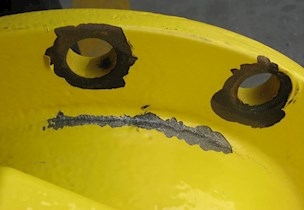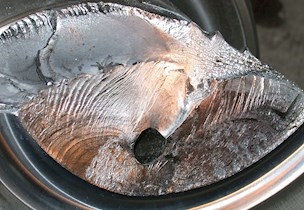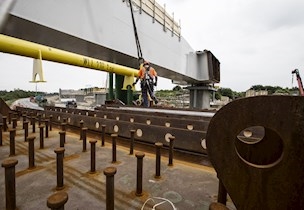Pressure equipment - Manufacturing, use and inspection
Safe operation of pressure equipment is critical to prevent harm to people, equipment, and the environment. Ensuring compliance with regulations minimizes risks and enhances reliability.
Regulations for the safety of pressure equipment
Pressure equipment is considered as dangerous technical facilities, for which the safety is determined by:
- Design - construction and manufacture
- Installation, attendance and maintenance
- Safety and control equipment
- The physical state (in good condition)
- Control – conformity assessment, inspection and periodic/other examinations etc.
Pressure equipment risks stem from confined energy. Overpressure in steam boilers can cause overheating, and leaks or explosions may result in severe injury or damage.
Safety in the manufacturing, commissioning and operation of pressure equipment
Some of the damage that may occur by applying pressure equipment is rooted in e.g.:
- Inappropriate construction and manufacture – of new equipment as well as alteration and repair
- Insufficient care and maintenance
- Degradation processes
- Lack of control.
As to safety and health as well as considering legal aspects, it is therefore crucial that manufacturers, owners and users are constantly up-dated on the requirements for their pressure equipment. This applies to both new and already deployed pressure equipment.
Requirements and rules for your pressure equipment
In Denmark, all pressure equipment operating above 0.5 bar overpressure must comply with specific regulations governed by the Danish Working Environment Service. These regulations require periodic inspections and conformity assessments to maintain safety and compliance.
Key requirements:
- Design and manufacturing standards: Compliance with safety criteria.
- Inspection and maintenance: Regular assessments to ensure operational integrity.
- Independent oversight: High-risk equipment may require third-party evaluations.
Who can supervise that your pressure equipment is safe?
As an independent, accredited inspection body, FORCE Certification A/S ensures your pressure equipment meets all safety, health, and compliance standards.FORCE Certification A/S is an accredited inspection body, type A according to DS/EN ISO 17020, cf. DANAK Reg. Nr. 9057.
Based on this accreditation, FORCE Certification A/S has been appointed notified body identification number 0200 (PED, SPVD and TPED) by the Danish Working Environment Service.
Our services include:
- Design and installation approvals: Verifying conformity during initial setup.
- Periodic inspections: Ensuring operational safety over time.
- Failure and damage investigations: Identifying root causes and preventing recurrence.
Questions and ordering of inspection
If you have questions about your pressure-bearing system - or want to order an inspector for the statutory inspections of the system, please contact our planning office:
Phone:+45 60 43 94 31
Pressure equipment includes:
- Pressure vessels
- Tanks
- Pumps
- Compressors
- Steam boilers
- Pipelines
- Valves, safety valves etc.
- Boiler and processing plants (units)
- Gas cylinders
- Fire extinguishers
- Portable tanks
- Filling stations.
Degradation processes in pressure parts:
- Corrosion/erosion
- Stress corrosion
- Fatigue cracks
- Creep
- Exceeding acceptable limits (pressure, temperature)
- Collisions etc.
EU directives on pressure equipment:
- PED – Pressure equipment directive
- SPVD – Simple pressure vessel directive
- TPED – Transportable pressure equipment directive.
These directives all contribute to facilitating unrestricted marketing of pressure equipment within the EU/EØS countries and to give the assumption of an equal, cross-border safety level.
Services

Materials selection and corrosion protection
The correct materials and optimal corrosion protection gives your product a longer service life.

Failure and damage investigation
Determine the cause of failure and prevent it from reoccuring.

Welding inspection
Inspection of the welding work is crucial in order to obtain the proper quality.


